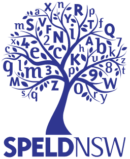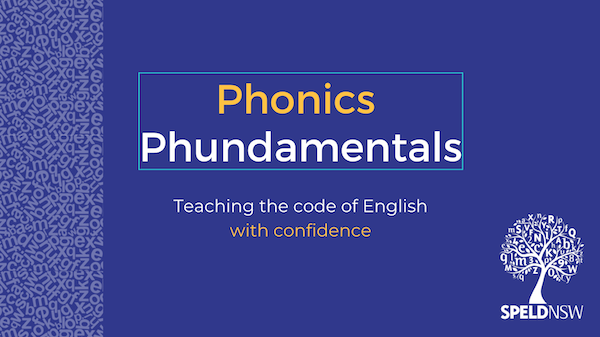Today, 30 November 2020 SPELD NSW welcomes the announcement from the NSW Minister for Education that the Phonics Screening Check will be compulsory in NSW public schools from next year.
According to the Sydney Morning Herald “Results from this year’s trial of the screening check, in which students read a list of words so their teacher can assess how well they know their letter-sound combinations, found 57 per cent of the children did not meet the expected achievement level.”
“Study after study shows that if phonics is not taught properly, student outcomes suffer across the board. Students with additional learning needs – particularly dyslexia – are further disadvantaged.” – Minister Sarah Mitchell
SPELD NSW supported the petition in 2017. We outlined our support of the phonics screening check in Australia because of its potential to identify students at risk of literacy failure.
“SPELD NSW has advocated and supported the phonics screening check as a tool to identify struggling students. Today’s announcement is welcomed by SPELD NSW and our members who work with students with specific learning difficulties every day,” said Georgina Perry, Executive Officer SPELD NSW.
Phonics is one of the five essential skills for literacy development. A Year One phonics check will help identify students who are struggling to develop reading skills including those that may have a specific learning difficulty, such as dyslexia.
Early intervention is vitally important for students with specific learning difficulties. SPELD NSW expects that the Year One phonics check will be an important tool that schools can use to identify students who need early intervention and support.
From 2021 onwards, the teaching of reading using phonics will be a compulsory part of the classroom, and all Year 1 students will be required to undergo a compulsory phonics check. Read more on the New South Wales Department of Education website which states:
“This is an exciting time for education in NSW. We are implementing initiatives that are world leading and that have been created using the best evidence.”
SPELD NSW Phonics Professional Learning
SPELD NSW offers Professional Learning for schools and educators including the Phonics Phundamentals Workshops. This workshop focuses on why is phonics important and how to teach it effectively. This course helps educators develop some core understanding of the linguistics behind systematic synthetic phonics instruction. You will learn the difference between a phoneme, a grapheme, a digraph and a blend and how to analyse sound-spelling correspondences. We will explore key concepts for teaching phonics, how to plan for systematic phonics instruction and what strategies can be used to support phonics in the classroom. The next course is 11 February 2021. Bookings recommended.
SPELD NSW gets a mention in Sydney Morning Herald
Georgina Perry, the Executive Officer of SPELD NSW, a learning disabilities advocacy group, said many schools were embracing phonics. “There’s a growing community of teachers and other professionals that are reading the literature,” she said. Read more.





